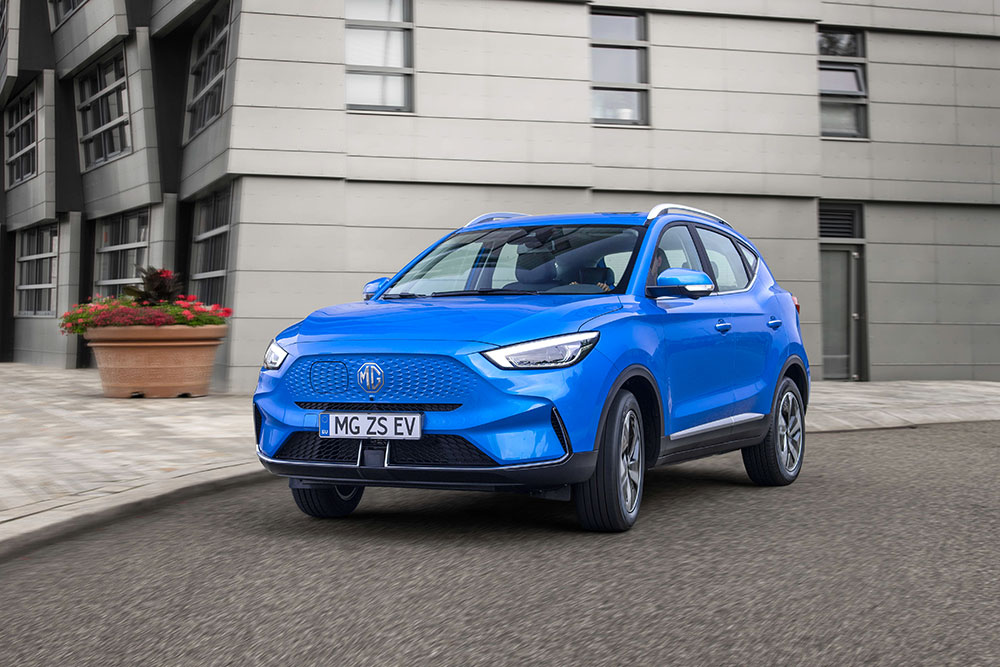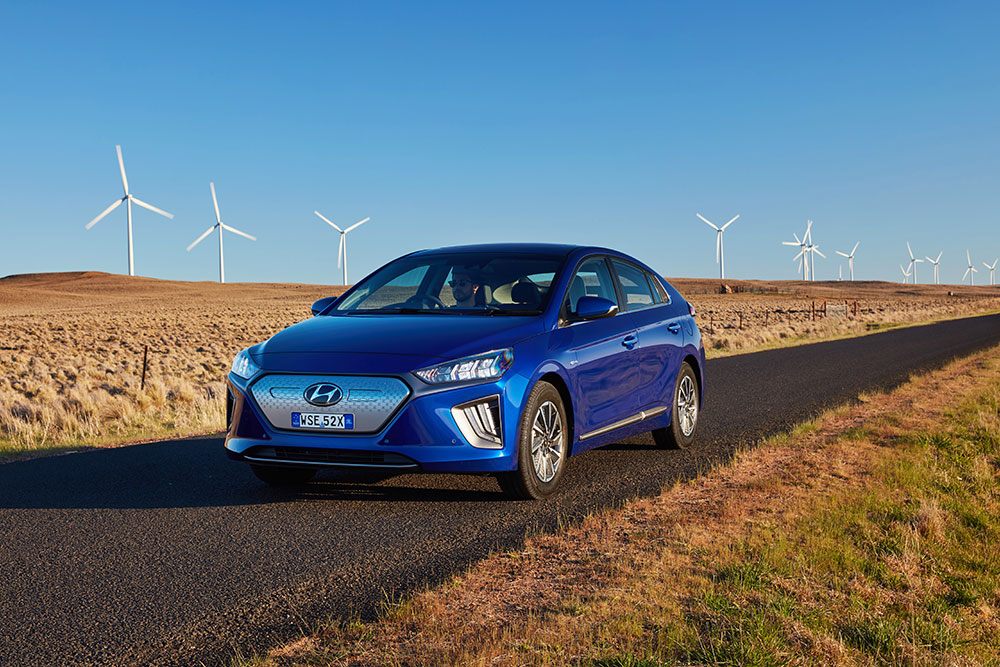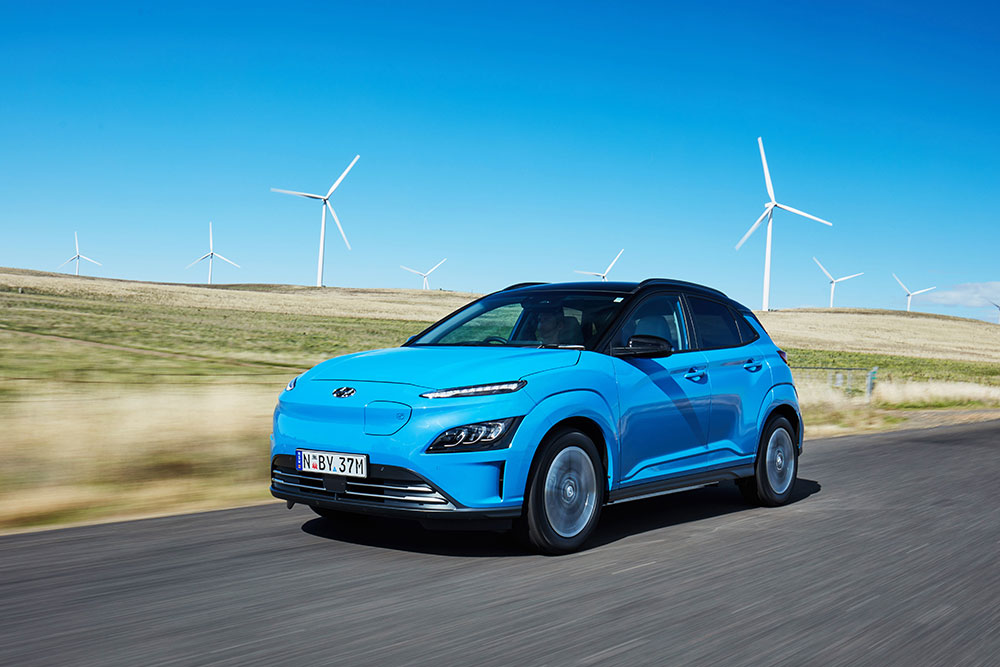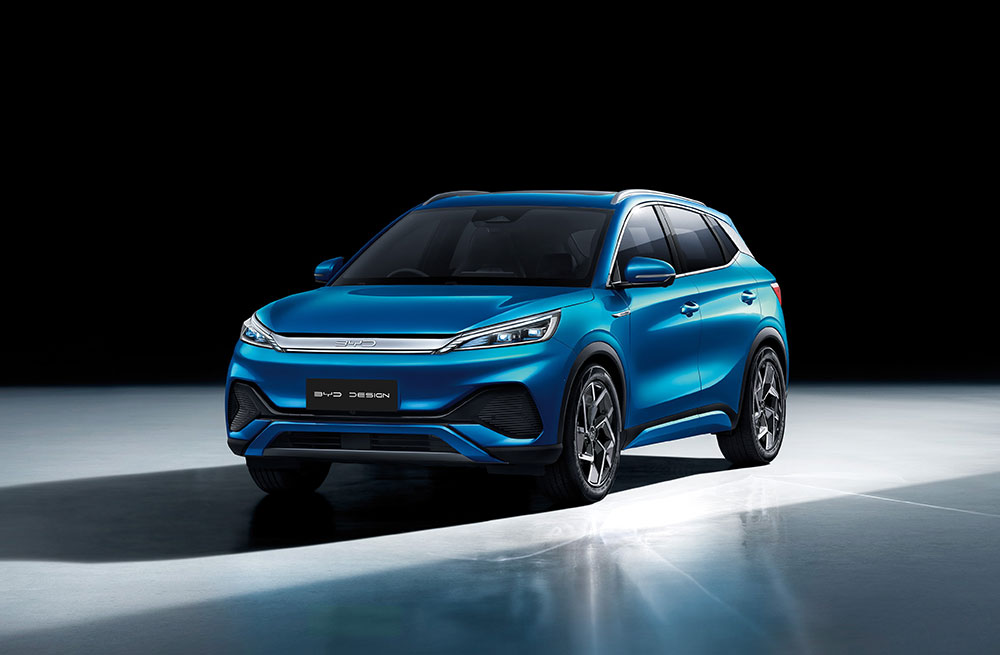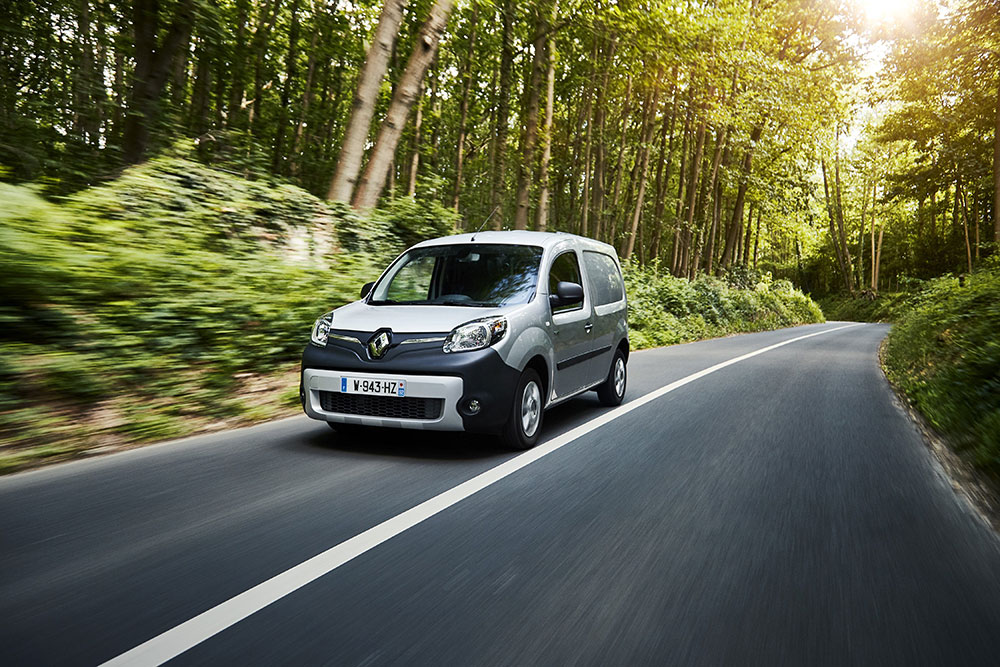Electric cars eligible for Queensland Government rebate
We look at six of the best electric cars that can put cash back in your pocket.
.jpg?h=666&iar=0&w=1000&rev=b50305e4aae9455e89b186cd556c9a01&hash=22DD871FC615DDAD68DB9A363E2C5BAD)
Buyers of new eligible zero-emission electric vehicles (EVs) with a purchase price of up to $58,000 can apply for a $3,000 rebate from the Queensland Government
The rebate comes into effect on 1 July 2022 and is only available for the first 15,000 battery electric passenger and light commercial vehicles.
The rebate is based on a vehicle’s dutiable value which is the total amount paid (including GST) for the vehicle, including delivery costs, accessories and options added to the vehicle and any other charges or fees levied by the dealer on the purchaser. Registration fees and vehicle registration duty are not included as part of the dutiable value.
Applicants are encouraged to keep proof of purchase information (such as contract of sale, dealer tax invoice displaying final payment and date the vehicle was sold) to support their application.
Click here for more information on the State Government scheme.
Below are six models which qualify for the rebate.
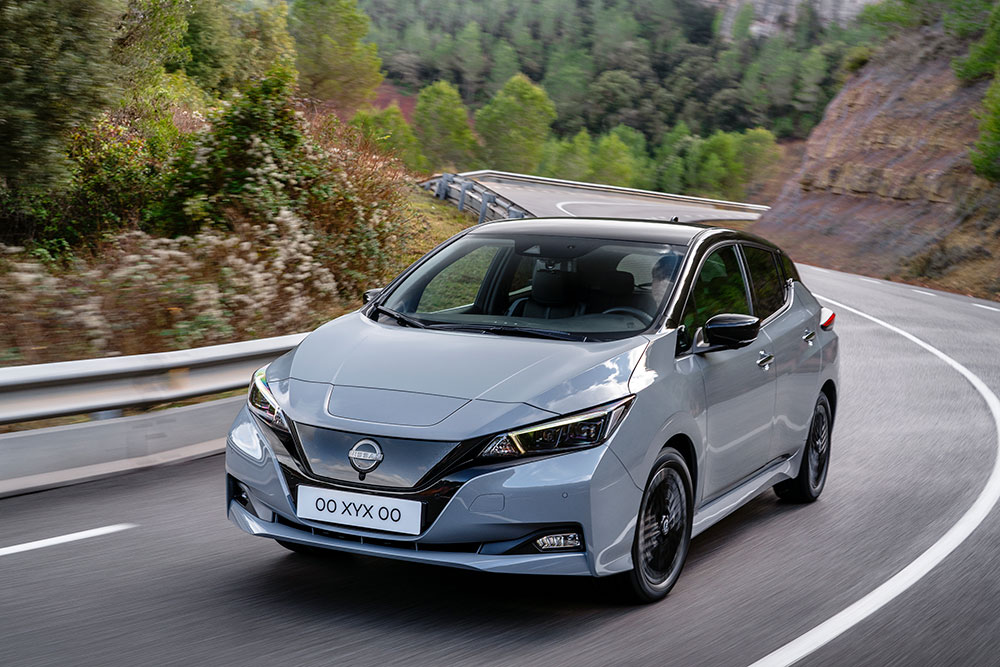
Nissan Leaf Standard Range
Hailed as the world’s first mass-market EV when launched in 2010, the Nissan Leaf is a true EV pioneer.
The electric five-door hatchback has benefited from several updates during its lifecycle, including the introduction of a second-generation version in 2017, a long-range variant dubbed the Leaf+ in mid-2021, and most recently a redesigned 2023 model year version that’s due in August with modest styling and technology updates.
Now, as before, the Leaf is available in a two-model line-up with different battery-capacity options to suit differing range requirements. However, only the standard-range Leaf qualifies for the State Government’s EV rebate.
At its heart is a 40kWh battery that delivers a range of 270km, versus a 62kWh battery and 385km in the extended range Leaf e+.
The electric motor’s outputs of 110kW/320Nm are also down 50kW/20Nm on the Leaf e+, and at 7.9 seconds the standard range takes a full second more to accelerate from zero to 100km/h than the Leaf e+.
On the plus side, the standard range is priced $10k below its stablemate and with range and performance that’s perfectly adequate for urban use and short trips out of town.
Key facts
- Price: $50,990 (MRLP)
- Battery: 40kWh lithium-ion
- Motor: Synchronous electric 110kW/320Nm
- Range/energy consumption: 270km (WLTP)/17.1Wh/100km
- Safety Rating: Five stars (2018)
- Warranty: Five years/unlimited km vehicle, eight years/160,000km battery.
MG ZS EV Excite
This Chinese-made electric SUV has laid claim to being Australia’s most affordable EV since its launch here in late 2020, although the newly released BYD Atto 3 is now providing stiff competition.
MG recently opened the sales books for an updated version of its MG ZS EV, with deliveries of the new model expected mid-year.
The new MG ZS EV continues to be available in two grades, both coming in under the State Government rebate threshold.
The more keenly priced Excite costs $46,990 drive-away and boasts standard features including 17-inch alloy wheels, LED headlights and tail lights, reversing camera, 360-degree camera, 10.1-inch touchscreen infotainment system, Apple CarPlay/Android Auto and satellite navigation.
Both variants feature a new 51kWh high-voltage battery replacing the previous model’s 44.5kWh version, as well as an updated electric motor and enhanced battery management electronics, providing up to 320km of range.
New exterior styling, a remodelled interior and the MG Pilot safety suite are standard inclusions of this EV which also comes with an impressive seven-year/unlimited-km warranty on vehicle and high-voltage battery.
Key facts
- Price: $46,990 (driveaway)
- Battery: 51kWh lithium-ion
- Motor: Synchronous electric, 130kW/280Nm
- Range/energy consumption: 320km (WLTP/17.1kWh/100km)
- Safety rating: Not yet rated
- Warranty: Seven years/unlimited km on vehicle and battery.
Hyundai loniq Electric Elite
Like its stablemate, the Hyundai Kona EV and rival MG ZS EV, the Hyundai Ioniq Electric is the electrified member of a model range that also includes internal combustion engine (ICE) versions.
There are two Ioniq EV models to choose from, both featuring the same five-door fastback body style and both priced under the Government’s EV rebate threshold.
The Ioniq Elite EV has a list price of $49,970 while the better-specified Electric Premium costs $54,010.
Updated in late 2019 as a 2020 model, the Ioniq benefited then from redesigned front and rear lighting, front grille and alloy wheels, a new soft-touch dashboard, ambient lighting and a tablet-style 10.25-inch touchscreen multimedia system.
Hyundai continues to focus on developing a local chassis tune for models like the Ioniq EV, which has tangible benefits in terms of supple ride and competent handling.
The front-wheel drive Ioniq Electric combines a 100kW synchronous electric motor with a single-speed gearbox and a 38.3kWh lithium-ion battery to deliver a range of 311kM (WLTP).
Key facts
- Price: $49,970 (MRLP)
- Battery: 38.3kWh lithium-ion polymer
- Motor: Synchronous electric 100kW/295Nm
- Range/energy consumption: 311km (WLTP)/13.8kWh/100km
- Safety rating: Five stars (2016)
- Warranty: Five years/unlimited km vehicle, eight years/160,000km battery.
Hyundai Kona Electric Elite Standard Range
Hyundai looked to build on the early success of its electrified compact SUV the Kona Electric in August 2021 by revamping the range and adding a new, more affordable entry-level model, dubbed the Kona Electric Standard Range.
With a smaller battery, less power and reduced range compared with its established stablemate (now called the Kona Extended Range), Hyundai declared the new model would provide customers with access to zero-emissions electric motoring at a more accessible price.
The new model features a 39.2kWh lithium-ion battery, 100kW electric motor and claimed real-world all-electric range of up to 305km when tested to WLTP standards.
That’s well short of the 64kWh battery and 150kW motor of the Extended Range model, which has an effective urban range of 450km, or 400km on the highway, but buyers do save $4,000 on the Elite version, plus the State Government rebate.
The rebate is, only available for the Elite with its MRLP of $54,500, with the Highlander over the limit after dealer charges and on-road costs.
Key facts
- Pricel: $54,500 (MRLP)
- Battery: 39.2kWh lithium-ion
- Motor: Synchronous electric 100kW/395Nm
- Range/energy consumption: 305km (WLTP)/14.3kWh/100km
- Safety rating: Five stats (2017)
- Warranty: Five years/unlimited km vehicle, eight years/160,000km battery.
BYD Atto 3
BYD stands for Build Your Dreams and the local importer EVDirect is promising to launch a range of more than six EV models by 2023.
The Chinese-made Atto 3 can be had with different range and power outputs – the entry-level model boasting a 50kWh battery and 320km range for an advertised driveaway price of $44,990 or there’s a 60kWh model with 480km of range costing $47,990.
Boasting an impressive sevenyear unlimited-kilometre warranty and a seven-year or 160,000km battery warranty, the Atto 3 is unique in this group in that its battery is not lithium-ion, but lithium iron phosphate or LFP, which is meant to be cheaper to manufacture.
The battery powers a 150kW/310Nm motor driving the front wheels through a single-speed reduction gear, delivering claimed 7.3 secs 0-100km/h acceleration.
Features include 18-inch alloy wheels, an eight-speaker sound system, driver and front passenger power-adjusted seats, electric panoramic sunroof, faux leather trim, DAB digital radio and wireless phone charger.
Key facts
- Price: $44,990 (driveaway)
- Battery: 50kWh lithium iron phosphate
- Motor: Synchronous electric 150kW/310Nm
- Range/energy consumption: 320km (WLTP)
- Safety rating: Not yet rated
- Warranty: Seven-year unlimited km vehicle, seven years or 160,000km battery
Renault Kangoo LWB Z.E.
French car maker Renault was another early mover in the electric vehicle space with the Renault Kangoo Z.E. commercial van launched in 2011, a year after the Nissan Leaf debuted.
The electric Z.E. arrived in Australia in late 2017 and was hailed at the time as our first all-electric commercial van.
Renault says the two-seat long wheelbase van is aimed mainly at corporate fleets, tradespeople and business owners.
It boasts a 650kg payload, 4000 litres of cargo space, practical sliding doors on either side and dual rear-doors with 180-degree opening.
The 33kWh battery pack under the cargo floor drives an energy-efficient 44kW motor, for a driving range of 270km on the New European Driving Cycle (NEDC).
With the brisk acceleration and torque that is characteristic of EVs, the Kangoo is a handy little load hauler and avoids the usual diesel noise and vibration which can contribute to driver fatigue, according to Renault.
Standard features include an anti-lock braking system, electronic stability control, hill start assist, four airbags, cruise control, rear parking camera with reversing sensors, audio system with Bluetooth, MP3 and USB inputs. An all-new Kangoo is expected later this year or early 2023.
Key facts
- Price: $50,390 (MRLP)
- Battery: 33kWh lithium-ion
- Motor: Synchronous electric 44kW/225Nm
- Range/energy consumption: 270km (NEDC)/12.2kWh/100km
- Safety rating: Five stars (2011)
- Warranty: Three years/unlimite
Get more information on electric vehicles from RACQ
Related topics
Things to note
The information in this article has been prepared for general information purposes only and is not intended as legal advice or specific advice to any particular person. Any advice contained in the document is general advice, not intended as legal advice or professional advice and does not take into account any person’s particular circumstances. Before acting on anything based on this advice you should consider its appropriateness to you, having regard to your objectives and needs.
Insurance Products (excluding Travel Insurance) are issued by RACQ Insurance Limited ABN 50 009 704 152 (RACQI) and arranged by its agent, RACQ Distribution Services Pty Ltd (RDS) ABN 35 116 361 650, AFSL 567130 and RDS' authorised representatives (including RACQ Operations Pty Ltd ABN 80 009 663 414, AR No. 234978 (RACQO). Conditions, limits and exclusions apply. RDS and RACQO are in the RACQ group of companies. One of the companies in the RACQ group of companies has a minority shareholding in RACQI.
RDS and RACQO have not taken your personal objectives, circumstances or needs into account when preparing advice regarding insurance products and you will need to consider whether the advice is appropriate for you. Read the Product Disclosure Statement (PDS) and any applicable Supplementary PDS before making a purchase decision on this product. You can also access our Target Market Determinations on this website. RDS receives a commission from RACQI for the policies it arranges. RACQO receives fees paid for services it provides to RDS. Further details about remuneration are available on request prior to purchasing.
Banking and loan products issued by Members Banking Group Limited ABN 83 087 651 054 AFSL/Australian credit licence 241195 trading as RACQ Bank. Terms, conditions, fees, charges and lending policies apply. This is general advice only and may not be right for you. This information does not take your personal objectives, circumstances or needs into account. Read the disclosure documents for your selected product or service, including the Financial Services Guide and the Terms and Conditions, and consider if appropriate for you before deciding.
Except for RACQ Bank, any RACQ entity referred to on this page is not an authorised deposit-taking institution for the purposes of the Banking Act 1959 (Cth). That entity’s obligations do not represent deposits or other liabilities of RACQ Bank. RACQ Bank does not guarantee or otherwise provide assurance in respect of the obligations of that entity, unless noted otherwise.
RACQ Bank subscribes to the Customer Owned Banking Code of Practice which establishes higher standards than the law requires. The Code reflects modern consumer expectations and developments in approaches to issues such as consumer vulnerability, guarantors, and supporting customers through financial hardship. Please read our Customer Owned Banking Code of Practice page for more information.
RACQ Operations Pty Ltd (ABN 80 009 663 414 AR 000234978) and Members Travel Group Pty Ltd (ABN 45 144 538 803 AR 000432492) are acting as an Authorised Representative of the issuer of the insurance, Tokio Marine & Nichido Fire Insurance Co., Ltd. (ABN 80 000 438 291 AFSL 246 548). Any advice set out above is general in nature only, and does not take into account your objectives, financial situation or needs. Before purchasing any travel products, please consider the RACQ Travel Insurance Product Disclosure Statement (PDS) and the Target Market Determinations (TMDs) that apply to these products. Whilst the PDS outlines the Terms and Conditions of these products, the TMDs outline the intended class of customers that comprise the target market for these travel products. This will allow you to consider which products best suit your objectives, financial situation and needs and consider the products appropriateness to your personal circumstances. TMDs also outline matters involving the distribution and the review of these products. The PDS, Supplementary PDS and TMDs for each travel product can be found here.
